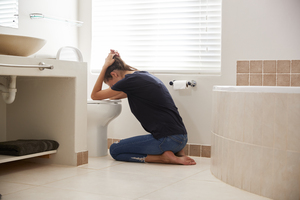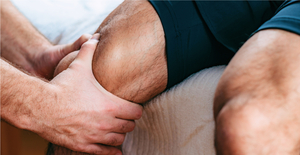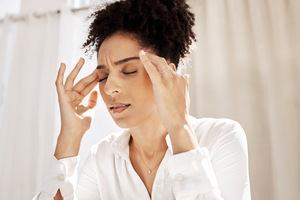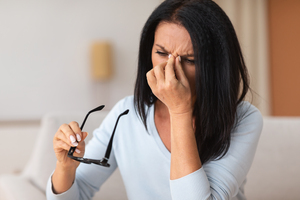Key points
- Clogged ears can be caused by earwax buildup, colds, sinus infections, high altitudes, allergies, water exposure, and jaw issues.
- Remedies for unclogging ears include ear drops, ear irrigation, steam inhalation, essential oils, warm compresses, and gargling with salt water.
- Other techniques include the Valsalva maneuver, yawning or swallowing, chewing gum, staying hydrated, and avoiding cotton swabs.
- If clogged ears persist or are accompanied by severe pain, hearing loss, fever, or discharge, it's important to seek medical advice.
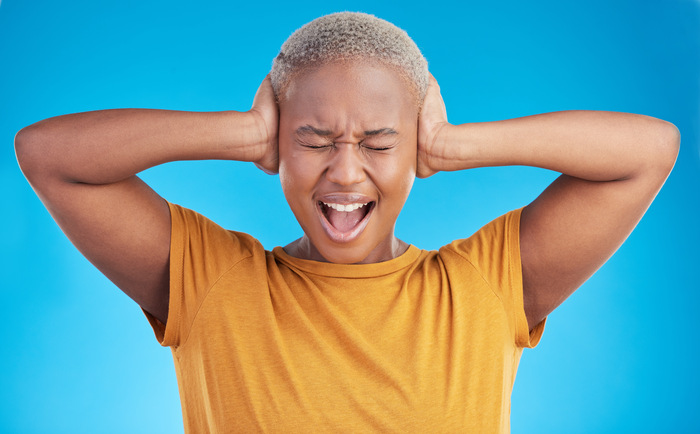
Clogged ears can be an uncomfortable and frustrating experience and is often caused by changes in pressure, allergies or excess earwax. Whether you're dealing with a feeling of fullness, muffled hearing or even mild pain, there are several effective methods to help relieve the blockage. Below we’ll explore a variety of tips and techniques to unclog your ears safely and effectively helping to ensure you can get back to enjoying clear sound and comfort.
What Causes Clogged Ears?
According to the Cleveland Clinic, clogged ears can result from various factors, including:
-
Earwax Buildup: Excessive earwax can accumulate in the ear canal, leading to a blockage that causes discomfort and muffled hearing.
-
Colds and Sinus Infections: Respiratory infections can cause inflammation and congestion in the eustachian tubes, resulting in a feeling of fullness in the ears.
-
High Altitudes: Rapid changes in altitude, such as during air travel or mountain climbing, can create pressure imbalances that make the ears feel clogged.
-
Allergies: Allergic reactions can lead to swelling and mucus production in the nasal passages, affecting the eustachian tubes and causing ear congestion.
-
Swimming or Water Exposure: Water trapped in the ear canal can create a sensation of fullness and temporary hearing loss.
-
Jaw Issues: Conditions like temporomandibular joint (TMJ) dysfunction can affect the ears, leading to a feeling of blockage or pressure.
12 Tips To Unclog Ears
Based on the underlying causes, the following are some effective tips from the Cleveland Clinic to help unclog your ears:
-
Ear Drops: Over-the-counter ear drops can help soften and break down earwax, making it easier to remove.
-
Ear Irrigation: Using a bulb syringe with warm water can gently flush out excess earwax. Be sure to follow instructions carefully to avoid injury.
-
Steam Inhalation: Inhaling steam from a bowl of hot water or taking a hot shower can help relieve congestion caused by colds or allergies, promoting drainage in the eustachian tubes.
-
Essential Oils: Breathing in essential oils like eucalyptus or peppermint can help open up nasal passages and alleviate pressure in the ears.
-
Warm Compresses: Applying a warm compress to the affected ear can soothe discomfort and help with drainage.
-
Gargling with Salt Water: Gargling with warm salt water can help relieve throat congestion and may promote eustachian tube function.
-
Valsalva Maneuver: Gently blowing with your mouth closed and nose pinched can help equalize pressure in the ears.
-
Yawning or Swallowing: Frequent yawning or swallowing can help open the eustachian tubes, relieving pressure and discomfort.
-
Chewing Gum: Chewing gum or sucking on candy can stimulate saliva production and promote swallowing, which may help unclog the ears.
-
Stay Hydrated: Drinking plenty of fluids can thin mucus and help reduce congestion, making it easier for the eustachian tubes to function properly.
-
Avoid Cotton Swabs: Refrain from using cotton swabs or other objects to clean your ears, as this can push earwax further in and cause blockages.
-
Consult a Healthcare Professional: If clogged ears persist or are accompanied by severe pain or hearing loss, it’s important to seek medical advice for appropriate treatment.
When To See A Doctor?
Here are some signs that indicate it’s time to see a doctor when experiencing clogged ears, according to the Cleveland Clinic:
-
Fever: A fever accompanying clogged ears may indicate an infection that requires medical attention.
-
Severe Pain in the Ear: Intense or worsening ear pain can be a sign of an underlying condition that needs evaluation.
-
Loss of Hearing: Sudden or significant changes in hearing ability should be assessed by a healthcare professional urgently.
-
Symptoms Lasting Longer Than a Few Days: If clogged ears persist beyond a couple of days without improvement, it’s best to seek medical advice.
-
Dizziness or Balance Issues: Experiencing dizziness or problems with balance can indicate a more serious issue related to the inner ear.
-
Discharge from the Ears: Any fluid or discharge coming from the ear, especially if it’s pus or blood, should be evaluated by a doctor.
-
Persistent Tinnitus: Ongoing ringing or buzzing in the ears that does not resolve may require medical assessment.
-
Recent Head Injury: If you have experienced a head injury and are now dealing with clogged ears, it’s important to seek medical attention to rule out any complications.
Urgent care near me
If you're experiencing clogged ears and need prompt medical attention, look no further than Solv to find an urgent care facility near you.
FAQs
What are the common causes of clogged ears?
Clogged ears can be caused by several factors including excessive earwax buildup, colds and sinus infections, rapid changes in altitude, allergic reactions, exposure to water such as swimming, and jaw issues such as temporomandibular joint (TMJ) dysfunction.
How can I unclog my ears at home?
There are several methods you can try at home to unclog your ears. These include using over-the-counter ear drops, ear irrigation with warm water, steam inhalation, using essential oils, applying warm compresses, gargling with salt water, performing the Valsalva maneuver, yawning or swallowing frequently, chewing gum, staying hydrated, and avoiding the use of cotton swabs for ear cleaning.
When should I seek medical help for clogged ears?
You should seek medical help if your clogged ears persist or are accompanied by severe pain or hearing loss. Other signs that indicate the need for medical attention include fever, severe ear pain, loss of hearing, symptoms lasting longer than a few days, dizziness or balance issues, discharge from the ears, persistent tinnitus, or recent head injury.
Can allergies cause my ears to feel clogged?
Yes, allergic reactions can lead to swelling and mucus production in the nasal passages, which can affect the Eustachian tubes and cause ear congestion.
Can I use cotton swabs to clean my ears?
No, it is not recommended to use cotton swabs or other objects to clean your ears as this can push earwax further in and cause blockages. Instead, consider using over-the-counter ear drops or ear irrigation with warm water.

